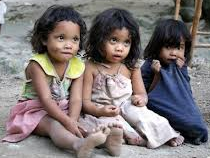When “Common Wisdom” Fails Us
 |
| Google Image |
My
mother grew up in a poor family. Her father abandoned his wife and six children
so my grandmother had to make a living by doing other people’s laundry. I'm sure it was
hard to keep the children clean and my mother probably
heard my grandmother use that adage often to encourage her children to wash regularly.
Though
often repeated and considered part of the “common wisdom,” however, that saying
is among many that simply don’t ring true. Think of the millions of people
living in the world’s slums, the millions of kids living on the streets. They
have little opportunity to keep clean and are too busy trying to survive to
worry about hygiene.
Are
they not next to godliness? I would say they are closer simply by virtue of
being poor.
Another
such saying is, “You can be anything you want to be.” That is among the
greatest of fraudulent maxims. Sure, if you’re a middle or upper class white
American, the possibilities are many. But if you’re African American, Hispanic
or other minority, your chances of “being what you want to be” are statistically
dismal.
There
are some economically successful minorities – and I wouldn’t encourage
minorities to use the “victim” excuse for not trying – but the successful ones
are exceptions. The facts speak for themselves.
According
to an article in an online publication of the American Psychological
Association,
 |
| Google Image |
- African American children are three times more likely to live in poverty than Caucasian children. American Indian/Alaska Native, Hispanic, Pacific Islander, and Native Hawaiian families are more likely than Caucasian and Asian families to live in poverty (Costello, Keeler, & Angold, 2001; National Center for Education Statistics, 2007).
- Unemployment
rates for African Americans are typically double those of Caucasian
Americans. African American men working full time earn 72 percent of
the average earnings of comparable Caucasian men and 85 percent of
the earnings of Caucasian women (Rodgers, 2008).
-
Despite dramatic changes, large gaps remain when
minority education attainment is compared to that of Caucasian Americans
(American Council on Education, 2006).
-
Minority
children in high-poverty areas are more likely to be exposed to alcohol
and tobacco advertisements (Wallace, 1999) and drug distribution (Wallace,
1999); they are also more likely to use drugs and exhibit antisocial
behaviors (Dubow, Edwards, & Ippolito, 1997).
What
does all this have to do with the search for God? Just that if you’re searching
for the God in which Christians and Jews believe, you won’t find him/her if you
ignore the structural injustices that keep people from the opportunities that
allow them to thrive.
“Inequality is the root of social ills,”
writes Pope Francis in The Joy of the Gospel, and tolerance of social ills –
such as poverty, lack of education and lack of access to health care – is really what's far
from "godliness.”
Promoting greater economic and social
equality isn’t promoting “class warfare,” pitting the poor against the rich.
It’s a matter of one of the two great commandments of Hebrew and Christian teaching,
that of “love of neighbor.”
People searching for God can’t be
indifferent about these issues because indifference gives the lie to a genuine
search. Granted, you can’t solve all the world’s problems, but you can help in
any small or big way. Organizations that work to solve them always need help
from volunteers and donors.
And people genuinely searching for God will
keep these issues in mind when voting.
Comments
Post a Comment